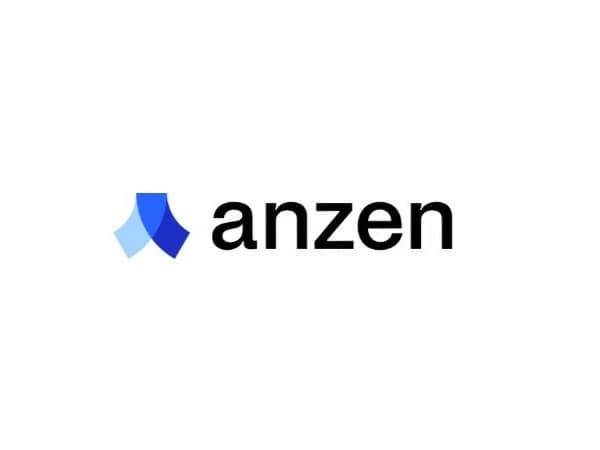订阅 wiki
Share wiki
Bookmark
Anzen Finance
0%
Anzen Finance
Anzen Finance 是一个去中心化金融 (DeFi) 协议,专注于将真实世界资产 (RWA) 上链,主要通过其 RWA 支持的稳定币USDz。该协议旨在通过以机构级私人信贷资产作为抵押品来为其稳定币提供稳定的收益和实用性。加密货币生态系统。 Anzen Finance 在多个区块链网络上运行,利用跨链技术来增强可访问性和可组合性。 [1] [2]
概述
Anzen Finance 的成立目标是通过代币化真实世界资产来桥接传统金融 (TradFi) 和去中心化金融 (DeFi)。该协议的核心产品是 USDz,这是一种稳定币,旨在通过由现金流、超额抵押的私人信贷证券的多元化投资组合完全支持来维持相对于美元的稳定价值。这种方法旨在为投资者提供与加密货币市场波动无关的收益。
该协议强调 USDz 的安全性和实用性。安全性通过具有抵押品和契约等保护特征的私人信贷资产的支持来解决。实用性由 USDz 的可组合性提供,允许将其集成到各种 DeFi 协议中,用于交易、借贷和质押等活动。 Anzen Finance 还推出了其原生代币 ANZ,该代币在生态系统中具有治理功能。
Anzen Finance 生态系统中的主要发展包括引入 OTC 市场以增强做市商的能力并加强 USDz 的稳定性,实施旨在提供将 USDz 转换回 USDC 的可靠途径的双重流动性系统,以及通过机构基金产品扩大抵押品支持。在启动板活动和空投之后,ANZ 代币于 2024 年 12 月可供领取。 [1] [2] [3] [4]
USDz 代币
USDz 被呈现为由真实世界资产支持的链上美元代币。其主要功能是在 DeFi 生态系统中充当稳定的价值存储和交换媒介,目标价格为 1 美元 [1]。
USDz 的支持包括机构级私人信贷证券的多元化投资组合。这个市场,尤其是在美国,被认为是一个价值数万亿美元的行业,为持续的固定利率收益提供了机会。作为抵押品提及的特定类型的私人信贷资产包括 SMB 商户应收款、SMB 融资(如保理发票和采购订单融资)、贴现应收款(如诉讼融资)、汽车租赁融资、SMB 租赁、担保移动应用程序融资和分期贷款。这些资产由一家在私人信贷交易方面拥有历史的成熟且获得许可的合作伙伴选择和管理,并由来自主要金融机构的经验丰富的执行团队提供支持。
USDz 的稳定机制依赖于去中心化交易所的套利机会。如果 USDz 的交易价格低于 1 美元,交易者有动力以折扣价购买它,从而产生购买压力,将价格推向挂钩。相反,如果 USDz 的交易价格高于 1 美元,合格做市商可以以 1:1 的 USDz/USDC 比率在 Anzen 铸造新的 USDz 代币,并在交易所出售,从而产生销售压力,有助于将价格恢复到 1 美元。此机制旨在使 USDz 的市场价格接近其 1 美元的目标。
USDz 旨在完全可组合,允许在整个加密生态系统中实现无缝集成和功能跨越。其效用扩展到参与 DeFi 协议、在去中心化交易所进行交易以及用于支付。USDz 的质押机会可在各种 DeFi 平台上获得,为持有者提供从底层 RWA 收益中获得奖励的潜力。 [1]
ANZ 代币
ANZ 代币是 Anzen Finance 生态系统的原生加密货币。其主要效用集中在治理方面,允许持有者参与与协议相关的决策过程。
根据 2025 年 7 月的数据,ANZ 代币的总供应量和最大供应量上限为 10,000,000,000 个代币。流通供应量约为 851,132,749 个代币。市值根据当前价格和流通供应量计算。完全稀释估值 (FDV) 表示如果整个供应量都在流通中的理论市值。
ANZ 代币可以在去中心化交易所进行交易。交易 ANZ 的主要交易所包括 Aerodrome (Base) 和 Uniswap V3 (Base),通常与 WETH 配对。 [2] [3] [4] [5]
技术
Anzen Finance 利用智能合约来管理 USDz稳定币和底层协议操作。这些智能合约已经过多家公司(包括 Zellic、Peckshield 和 Halborn)的安全审计,审计报告可供审查 [1]。
USDz 代币与 LayerZero 的 Omnichain Fungible Token (OFT) 标准兼容。这种兼容性使 USDz 能够在不同的区块链网络之间进行桥接,从而促进其作为全链稳定币在更广泛的生态系统中的使用。可以通过 Anzen 网站直接执行桥接,交易通常需要几分钟 [1]。
值得注意的是,ANZ 代币合约是一个代理合约。这种类型的合约允许合约所有者进行代码更改,其中可能包括修改功能,例如禁用销售、更改费用或铸造和转移代币。建议用户谨慎行事,因为所有者可能会修改合约。 [2]
用例
Anzen Finance 及其 USDz 代币的主要用例围绕提供稳定的、RWA 支持的收益,并促进参与更广泛的 DeFi 生态系统。
- 质押和收益生成: 持有者可以在各种 DeFi 平台上质押 USDz,以赚取来自底层私人信贷资产产生的收益的奖励。这些收益被描述为与加密货币市场风险敞口无关且非周期性。
- DeFi 集成: USDz 的可组合性允许它用于跨越广泛的 DeFi 协议,用于借贷和收益耕作等活动。这使持有者能够优化其投资组合,并在去中心化应用程序中利用 USDz 的稳定性。
- 交易: USDz 可以在去中心化交易所进行交易,提供流动性,并使用户能够将其兑换为其他加密货币,包括 USDC 和 USDT 等稳定币。
- 支付: 作为一种稳定币,USDz 可用于加密货币生态系统中的支付,受益于其稳定性和广泛接受的潜力。 [2] [3] [1]
Anzen Finance 已与区块链和传统金融领域的各种实体建立了合作伙伴关系并获得了支持。该协议列出了其生态系统中的几个合作伙伴,包括 Aerodrome、Beefy Finance、Base、Circle、Movement Labs 和 Extra Finance。
该项目还得到了包括 Circle Ventures、Mechanism Capital、Frax Finance、Tribe Capital、Infinity Ventures 以及其他风险投资公司和天使投资者的投资和支持。与成熟且获得许可的合作伙伴合作进行私人信贷资产的承销和托管也是一项关键关系。 [1] [2]
Anzen Finance 的智能合约已经过独立公司的安全审计,以评估其稳健性并识别潜在的漏洞。该协议列出了 Zellic、Peckshield 和 Halborn 作为审查过其智能合约的审计师。审计报告可供公众访问。 [1]
发现错误了吗?
